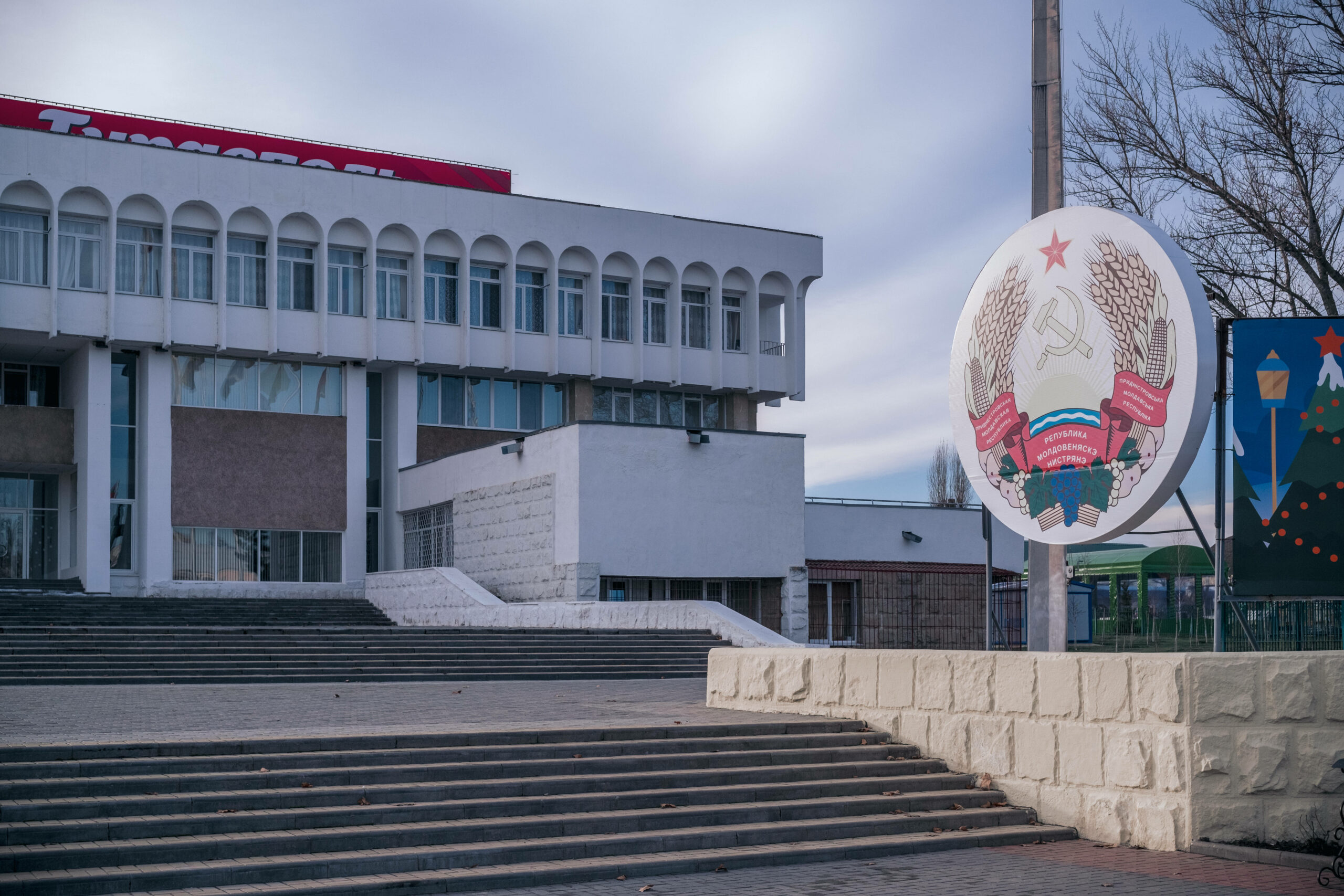The energy crises currently hitting the Transnistrian region underscore the weaknesses of Moldova’s separatist regime vis-à-vis Russia. Over the past 30 years, the separatist regime in Tiraspol has sustained its energy connections with Moscow, while Chișinău traded its political allegiance to Russia in return for various economic benefits. One such advantage was extending the natural gas purchase contract with Gazprom. As part of the gas package agreement with Moscow, the Moldovan authorities implicitly ensured a continuous gas supply to the Transnistrian region. The most recent contract with Russia was signed in October 2021; however, it represented an upgraded agreement negotiated by Moldova in 2006 under the Communist Party government. However, the 2021 gas contract that benefits Tiraspol is at risk due to Moldova’s gas debts and the halt of gas transit through Ukraine. However, Tiraspol is neither requesting help from Russia to overcome the energy crisis, nor is Moscow keen to assist a pro-Russian separatist regime at a critical moment for its political-economic survival.
An old habit of Moldova’s separatist regime
Tiraspol’s access to Russian gas has always been closely dependent on the quality of Moldovan-Russian cooperation. Therefore, Tiraspol saw any interruption of the dialogue with Moscow as a significant danger to its political and economic interests. On the other hand, the situation paid off for Chișinău’s interest, rather in a perverse way, from Russian energy subsidies for Tiraspol. The Moldovan side managed to obtain more attractive electricity prices and, consequently, to mitigate inflationary pressures on the population. Until the end of December 2024, the separatist regime generated 80% of the electricity utilised in Moldova. In early January, Chișinău purchased over 50% of its electricity from Romania, a proportion anticipated to rise to as much as 62%. However, this switch in electricity suppliers carries costs for Moldova. Tariffs for consumers in the region controlled by Chișinău have already doubled, rising from 2.84 Moldovan lei per kWh to 4.68 Moldovan lei. This amounts to approximately 0.24 euro compared to the average 2024 tariff in the EU of 0.18 euros per kWh, which is driven by domestic production and market demand.
Before the destruction of over 50% of Ukrainian production capacities due to Russian military attacks in 2022−2023, Ukrainian electricity suppliers competed with a power generator in the Transnistrian region: the Cuciurgan Power Plant. The elimination of Ukrainian electricity supplies enabled the Transnistrian region to utilize Chișinău’s cheap electricity supply (since 2021) to negotiate concessions from Chișinău. Over the past two years, the Moldovan Government has issued permits for managing scrap metal (including imports from Romania), making exceptions to the rule (requested by the EU) concerning pollutant emissions. These facilities served the economic interests of the Rabnita Metallurgical Plant, whose economic activities involved European companies, such as Metinvest Systems SRL, registered in the EU and owned by businessman Maxim Șevcenco, who holds dual Romanian-Ukrainian citizenship. In 2022, this company obtained permits from Chisinau to export scrap metal from Romania to the Transnistrian region. Alongside the Rabnita Metallurgical Plant, until the end of December 2024, the Cuciurgan Power Plant was another Transnistrian company that generated revenue from Russian gas. Some estimates indicate that the Power Plant contributed to the breakaway region’s budget by up to 70%. If the ongoing energy crisis is not resolved in a timely manner, the potential shutdown of the Power Plant could have serious financial repercussions for the separatist regime.
Thus, Moscow has established a clientelist relationship with the political elites in the separatist region through its natural gas supplies. This has created a controllable «vertical of power» of an authoritarian nature within the separatist region and fostered «social peace» by providing tariffs lower than those in Moldova. Furthermore, the use of Russian gas benefits the economic interests of the oligarchic group led by Victor Gușan, the head of the Sheriff company, who oversees local political control.
Navigating the energy crisis: muddling through
The separatist region’s administration has rejected Chișinău’s proposal to receive non-Russian natural gas. Tiraspol, instead, demands the resumption of transit through Ukraine following direct negotiations between the Moldovan government (and Moldovagaz) and the Russian authorities. The separatist regime has indicated its preference for purchasing Russian gas on a contractual basis and at negotiated prices rather than importing gas from the European market at fluctuating prices. Chișinău insists that the only way to manage the crisis is by buying gas in the European market through purchases by Moldovagaz. Gas could be imported from Romania via the Iasi-Chișinău pipeline, thus avoiding the Ukrainian route. Any import of gas from Europe implies the condition that Tiraspol must fulfil: to pay for the gas to Moldovagaz, something it has never done before. Until now, the Transnistrian region has accrued over 11 billion dollars owed to Gazprom, which the Russian side has never requested back in an official form from the separatist regime.
Since January 2025, Moscow has shown no intention of supplying natural gas via the «Trans-Balkan» route and the «Turkish Stream» gas pipeline. The Russian side is undermining discussions about alternative routes by citing the issue of historical debts for Russian gas: approximately 720 million dollars (of which 433 million dollars are the debts themselves and the rest are fines), which Chișinău does not recognise based on a Western audit that Russia rejected. Chișinău accumulated the debts from August 1991 to October 2021, with the majority accrued during the pro-EU coalition governments of 2011−2015, which included President Maia Sandu when she served as Minister of Education. Based on the audit conducted by Wikborg Rein Advokatfirma AS and Forensic Risk Alliance & Co, released in June 2023, Chișinău dismisses the debts owed to Russia.
On its side, the Moldovan authorities are grappling with a delicate dilemma. On the one hand, the government cannot negotiate with Moscow for ideological reasons, as it is aligned with the EU and Ukraine. On the other hand, Chișinău lacks the resources to provide subsidies to the Transnistrian region for gas purchases, even if the separatist regime accepts non-Russian gas to tackle the energy crisis. In the event of a state of emergency, the Moldovan government has started considering the possibility of nationalising the Moldovan-Russian company Moldovagaz. However, such a decision does not resolve the energy crisis on either side of the Dniester River. Conversely, taking over Moldovagaz carries the risk of incurring new financial and reputational costs for Chișinău, including allegations of violating property rights and a lack of sufficient budgetary resources to acquire Moldovagaz assets.
Since the energy crisis erupted, there has been no collaboration between Chișinău and Tiraspol in managing the overlapping energy crises. To alleviate the impact on the population, the Tiraspol administration has disconnected industrial capacities and segments of the civil sector from the power supply, except critical and social infrastructure (hospitals, kindergartens, etc.) that provide public services. In addition to the power outages, which are necessary to balance energy consumption and protect the electrical system from failures, socially vulnerable groups in the region are receiving assistance in the form of firewood. The only energy production in the breakaway region comes from the gas remaining in the pipelines: approximately 13 million m3 (sufficient to generate electricity for about 50 days) compared to 5.7 million m3 daily before the outage. Additionally, the Power Plant can produce energy from coal.
Overcoming the energy crisis in the Transnistrian region: three probable scenarios
The Moldovan government is faced with a delicate dilemma. If Chișinău does not resolve the crisis in the breakaway region, the implications generated by the combined crisis on both banks will affect the entire country. Russia’s plans towards Moldova, such as the destabilisation before the parliamentary elections, will considerably determine the degree of escalation of the energy crisis on both banks of the Dniester.
The first scenario is that Chișinău provides humanitarian aid to the separatist region without becoming involved in identifying alternative gas supplies. Tiraspol can produce energy for the next two months. Thus, it is estimated that until March, the Transnistrian administration will likely decline generalised aid from the constitutional authorities. However, Chișinău can explore individual ways of assisting Moldovan citizens in the region (firewood, coal at subsidised prices, etc.) until bad weather sets in (snow, temperature drops, etc.). The Transnistrian side may allow targeted humanitarian aid from Chișinău, thus preventing a humanitarian crisis (collateral damage among the population).
In the second likely scenario, the Transnistrian region accepts non-Russian natural gas purchased by Chișinău, but does not accept the cost. Gas deliveries from Europe could be an acceptable solution for Tiraspol, provided two conditions exist. The first condition is that the delivery of non-Russian gas would occur temporarily (until the end of the war in Ukraine). Even if European gas will be imported for a while, the strategic goal of Tiraspol’s political and economic elites is to resume Russian gas deliveries, which provide them with stable financial revenues, minimal political stability and legal impunity. The second condition is that the separatist regime would not pay the bill. Consequently, Chișinău would need to borrow funds to subsidise the Transnistrian region, replacing traditional Russian assistance to the separatist regime. The sustainability of the separatist regime relies on the «social peace» maintained by subsidised Russian gas. If Tiraspol is required to pay for non-Russian gas, it will need to raise tariffs for the population, leading to the collapse of the «industrial paradise» (since production costs will rise significantly). Without social and economic interests sustained at levels acceptable to local key actors, the separatist regime will cease to exist. This is understood in Chișinău and Moscow. Therefore, Moldovan authorities perceive the energy crisis in the separatist region as a chance to create the first preconditions for its settlement but ignore that Tiraspol is unwilling to pay the price for non-Russian gas. Without Western support, which could only come in the form of loans (new debts to Chișinău), the Moldovan side lacks an appealing offer for the separatist regime, which has relied on Russian gas for three decades. At the same time, Russia aims to leverage Moldova’s actions during the energy crisis for its strategic advantage, capitalising on the prevailing socio-economic public discontent with the ruling party’s performance ahead of the 2025 elections.
The third scenario, lastly, would be for Tiraspol and Chișinău to establish a bilateral mechanism to secure the purchase of Russian gas via alternative (non-Ukrainian) routes. Preconditions for this scenario would require the Moldovan side to acknowledge historical debts to Gazprom within the framework of direct negotiations. If Chișinău adopts this scenario, it will restore electricity production at lower prices and avert inflationary shocks and the impoverishment of the population, which will adversely affect electoral outcomes for the government. Nonetheless, the political implications of these actions will be catastrophic for the governing tandem of the Party of Action and Solidarity (PAS) and Maia Sandu before the critical parliamentary elections in 2025 (likely postponed to the autumn). Any negotiations with Moscow during the current energy crisis, especially if the Moldovan side validates gas debts, could equate to losing the elections. As a result, the future governing coalition will pursue retribution against PAS-Sandu and pro-government entities in the media and civil society based on local precedents set in 2021−2023 and drawing inspiration from Georgia‘s current political and civic restrictions.










